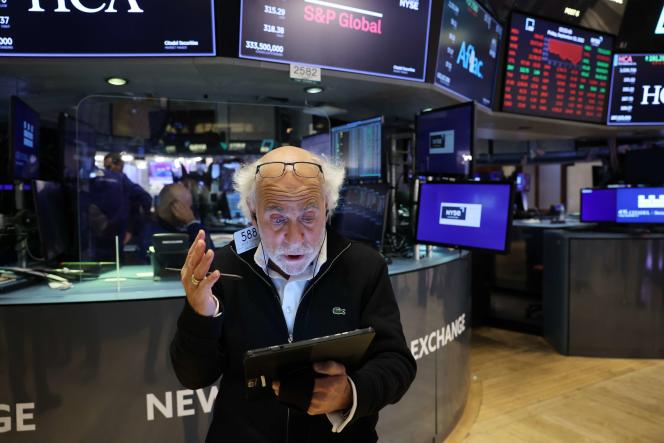
Inflation and recession: The cocktail is explosive for the financial markets, which ended the week with a general decline, be it stocks, bonds and all currencies against the dollar. It’s about the determination of Federal Reserve President Jerome Powell to raise interest rates for as long as it takes to fight inflation (8.3% in August), even if that means a recession. Since March, the Fed has raised its rates five times: they have gone from zero to more than 3%, and the move should continue to reach at least 4.5% in 2023. Added to this are the UK government’s fiscal stimulus, the threat of a recession in the eurozone and the Russian military escalation in Ukraine.
Wall Street hated it, anticipating higher corporate costs and an imminent drop in earnings. Thus, US equities continued their creeping crash on Friday, September 23. The Dow Jones index (-1.6%) hit its lowest level since 2020, while the S&P 500 corporate index (-1.7%) and the tech-rich Nasdaq (-1.8%) hit June lows were approaching. Since the beginning of the year, the correction of the three indices is 18.5%, 22.5% and 30.5% respectively.
Stocks are being ravaged by rates, which won’t stop flying, in the wake of the Fed’s rise in the cost of money: so the 10-year risk-free rate is now above 3 70% – they hit a 3 high .82% on Friday, a record since 2010. Two-year yields rose above 4.2% from just 0.2% a year ago. The mortgage interest rate with a 30-year term is now 6.3%. So a real estate crash is imminent in the United States, with real estate costs rising in a market fueled for three years by free money from the Fed and the exodus of Americans into bigger homes for good reason.
Faced with the risk of a recession and lower energy demand, Texas Oil (WTI) fell more than 5%, to well below $80 a barrel, from a record $130 hit in March at the start of the year. the war in Ukraine. Black gold is back at January levels, trailing most commodities in its wake, hit by a potential global recession: copper, which generally reflects the planet’s economy, has lost a quarter of the global economy since the beginning of the year. lost its value, despite the needs for the energy transition. Bitcoin (about $18,800) is at its lowest since late 2020.
You still have 43.78% of this article to read. The following is for subscribers only.
#Facing #recessioninflation #pair #Wall #Street #crash #continues